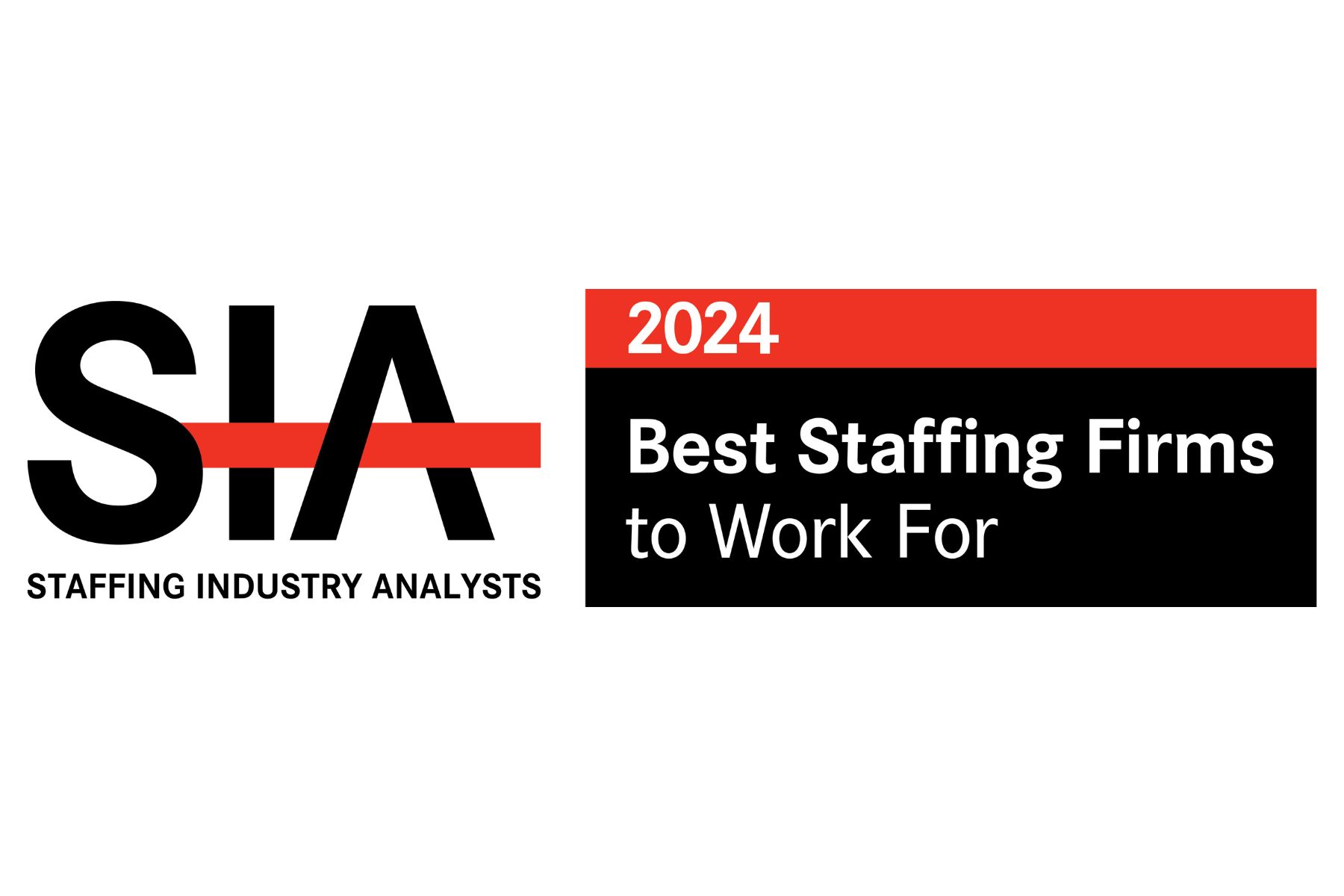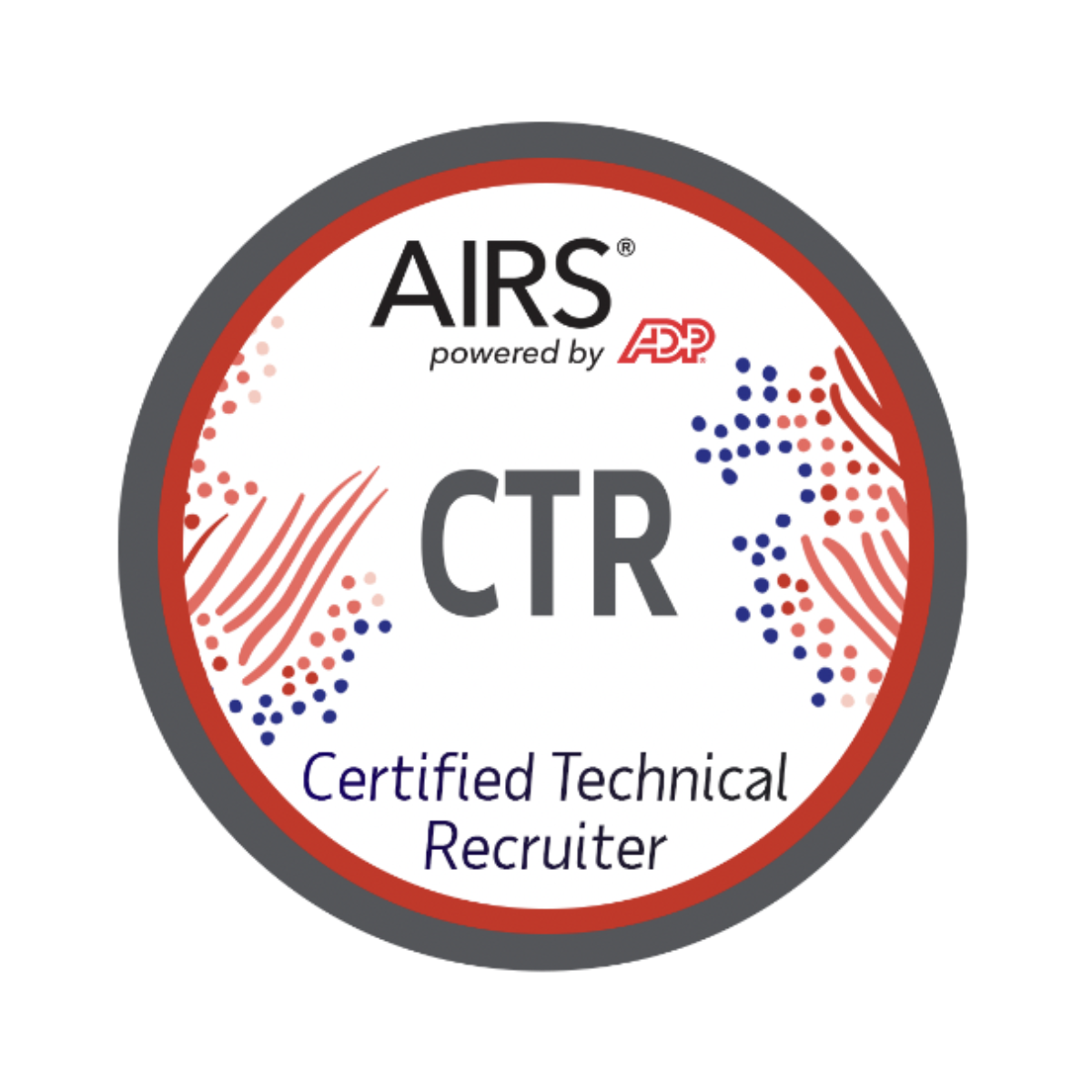Are you currently working with a recruiter or thinking of working with one? A recruiter is a great resource to help you in your job search. Here are some things to keep in mind as you work together to find your next role.
Tip 1: Think of it as a partnership
Think of working with a recruiter as a partnership. Recruiters want to help you succeed and find the role that suits you and your skills. They work to find the best match for both you and their client.
When talking with a recruiter, let them know your career goals and salary requirements. Be open and honest about what is important to you and what type of role you are looking for.
“Be upfront, honest, and not afraid to share information regarding your career search journey,” says Stoney, a senior technical recruiter. “We are like your own personal career coach [and] advocate…The more information you share will help the recruiter land that right opportunity for you!”
Tip 2: Be honest
Honesty is key. Be honest with your recruiter – about your career goals, your salary requirements, and especially your skills and experience. Make sure your resume is an honest reflection of your work history and abilities.
Let your recruiter know if a job doesn’t sound right for you or if you are no longer interested in a particular role.
“Always remain professional and never be afraid to say ‘no’ this is not the right opportunity for me. I think candidates feel by saying ‘no’ this is going to hurt our feelings, or we won’t work with you anymore. This is far from the truth – we want what is best for you to make it a win-win situation,” says Stoney.
Also, be honest with your recruiter about gaps in your employment or if there is something that might show up on a background screen. Remember, your recruiter is there to help you and the more open and honest you are, the more they can help you. If your situation changes at any point, communicate this with your recruiter.
Being transparent and open, says Sarah, a technical recruiter, “helps us to better understand [your] needs and direction…it opens up a trusting relationship to move forward.”
Tip 3: Communicate
Communicate, communicate, communicate. When you hear from a recruiter, they could be calling you for a number of reasons – a new job opportunity, a quick question, a request from the client for an interview, or even a job offer! Responding is important – even if it’s to say I’m not interested.
If for any reason you change your mind about a role and no longer wish to continue with the process, tell your recruiter. Don’t ghost them. If you found a job elsewhere, let them know this too.
Communication also goes hand in hand with honesty. If your recruiter asks if you are interviewing elsewhere or entertaining any offers, be honest and let them know. This is a common question from recruiters, and if you are actively interviewing or considering an offer, your recruiter may be able speed up an interview or offer for the job that they have submitted you to.
Also, be honest with your recruiter about what you would do if you receive a counteroffer from your current employer. Would you accept it?
Tip 4: Be professional
Keep in mind that when you are talking to a recruiter they are pre-screening you and seeing if you and your skills (both technical and soft skills) are a good fit for both the role and the client. Think of it like a pre-job interview. Always be professional.
If you are on a video call, dress professionally, make sure your surroundings are tidy and not distracting, and be sure there are no loud background noises. If you are talking by telephone, make sure it is not noisy in the background.
It is okay to let your personality come through while being professional at the same time.
Tip 5: Ask questions
Feel free to ask your recruiter any questions about the job or the client they are submitting you to. Your recruiter wants you to be comfortable with the role and its requirements and address any of your concerns about the job before the interview.
Questions may have to do with:
1. Job responsibilities
2. Company culture
3. Work hours
4. Location – will it be onsite or remote?
5. Salary and benefits
6. Time off/PTO
7. Travel
Tip 6: Accept guidance
Realize that recruiters are a wealth of information. They can offer advice on all sorts of things like what needs to be on your resume or how to prepare for an interview. They can help you negotiate the best deal for you, and they can give you insight into the company culture or manager you are interviewing with.
Remember, as Stoney said earlier, recruiters are your career coach and advocate. They are there to guide you through the process.
Tip 7: Stay in touch
Keep in touch with your recruiter to let them know how it’s going with your job search – what’s working and what’s not.
Keeping in touch keeps you in the forefront of your recruiter’s mind for new opportunities that may arise. Don’t feel like you are bothering your recruiter if you call to find out what jobs they might have that would be a match for you, says Rob, a senior technical recruiter.
If your recruiter reaches out to you with a job that you aren’t interested in, as mentioned earlier, it’s okay to say you’re not interested but consider referring someone from your network who might be a good fit for the role.
Keep in mind that a good recruiting company doesn’t forget about you once you are placed. They keep in touch with you to find out how the job is going and if you have any concerns. And if at any point you are looking to make a career change, they hope you will let them know so they can look for new opportunities for you.
If you are ready to take that next step in your career, reach out to one of our expert recruiters at TM Floyd & Company. Our talented team is ready to match you to a job that best suits your skills and expertise.
Resources
















